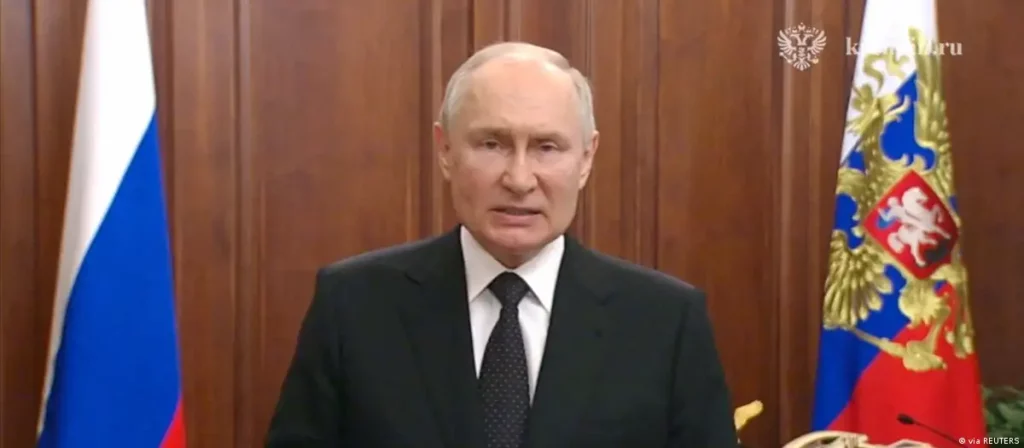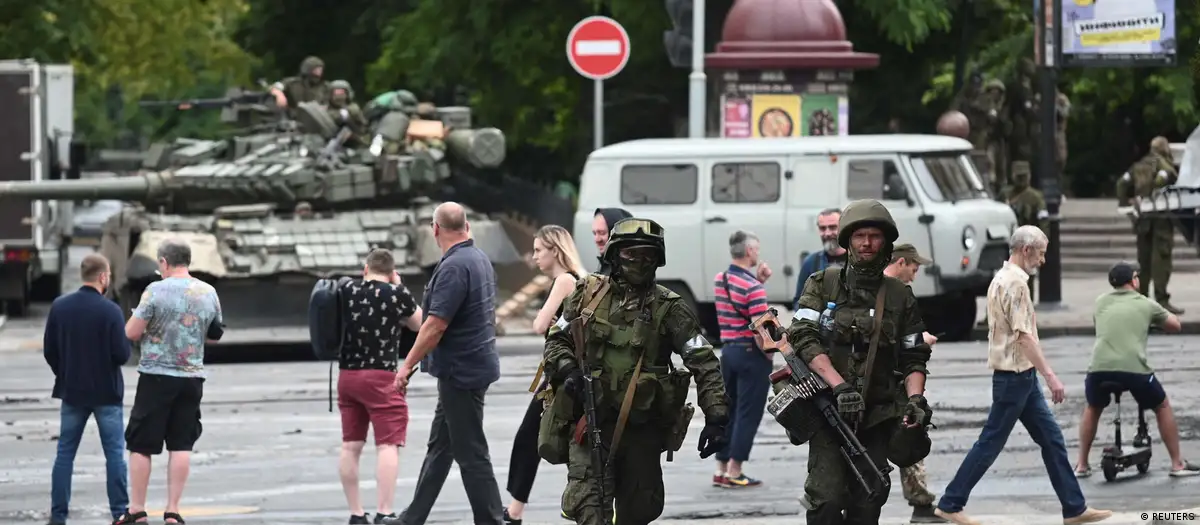Nations that border Russia have tightened security and are closely monitoring events. “The situation is serious,” says Swedish chancellor.
Several European countries, in addition to NATO, said Saturday (June 24) they were closely monitoring what is going on inside Russia, where an uprising by Wagner Group paramilitaries threatens the government of Russian President Vladimir Putin.
A NATO spokesman said the alliance is “monitoring the situation” triggered by the mercenary rebellion.
European Council President Charles Michel, meanwhile, said the situation in Russia “is clearly an internal matter” for that country and that support for Ukraine and Ukrainian President Volodimir Zelenski will remain unchanged regardless of what happens in Moscow.
The countries bordering Russia and Belarus, for their part, have announced that they will tighten border security. Estonia’s Prime Minister Kaja Kallas announced that both her country as well as Lithuania and Latvia are reinforcing their eastern borders and urged their citizens not to travel to Russia. “We are exchanging information with our partners, and I can assure you that there is no direct threat against our country,” the head of government of that former Soviet republic reported.
“Serious situation”
Latvian President-designate Edgars Rinkevics said that the situation on the border is being “closely monitored,” a statement similar to that of Polish President Andrzej Duda, who wrote on Twitter that the country’s forces are “intensively” guarding the border with Russia. He added that he has already held consultations with his allies as well as Polish Prime Minister Mateusz Morawiecki and the country’s Defense Minister Mariusz Blaszczak.
Finland and Sweden, for their part, showed concern about the situation in Russia, which for Helsinki is further evidence of the internal divisions suffered by that country. “We are closely following the development of the situation,” Finnish Prime Minister Petteri Orpo said on Twitter. “The situation is serious,” Swedish Chancellor Tobias Billström wrote, for his part, on the same social network.
Romania, which borders Ukraine and Moldova, said it is closely monitoring “developments in Russia.” Germany, meanwhile, has asked its citizens to avoid central Moscow and the city Rostov.
On Saturday, the head of the Wagner Group mercenaries, Yevgeny Prigozhin, announced an armed rebellion against the Russian military and said that his forces control military installations in the southern Russian city of Rostov-on-Don.
Russia’s security services responded to Prigozhin’s declaration of armed rebellion, calling for his arrest. In a sign of how seriously the Kremlin took the threat, security was tightened in Moscow.
In a televised speech, Russian President Vladimir Putin called the armed insurrection “treasonous” and promised to “neutralize” the mercenaries’ actions.
Putin vows to “neutralize” rebellion against Russian army

Russian President Vladimir Putin vowed on Saturday (6/24) to crush what he called an armed mutiny after rebel mercenary chief Yevgeny Prigozhin said he took control of a southern Russian city as part of an attempt to unseat the military leadership.
The dramatic turn of events, with many obscure details, appears to be the biggest domestic crisis Putin has faced since he ordered a full-scale invasion of Ukraine – which he calls a “special military operation.”
In a televised speech, Putin said that “excessive ambitions and vested interests led to betrayal” and called the mutiny a “stab in the back.”
“It is a blow to Russia, to our people. And our actions to defend the motherland against this threat will be harsh.”
“All those who deliberately took the path of treason, who prepared an armed insurrection, who followed the path of blackmail and terrorist methods, will suffer the inevitable punishment, will answer both to the law and to our people,” Putin said.
Situation “difficult” in city taken over by mercenaries
The Russian president has admitted that the situation is “difficult” in the southern city of Rostov-on-Don, where the Wagner paramilitary group claims to control military facilities, including an airfield.
“Decisive steps will be taken to stabilize the situation in Rostov, which is difficult,” Putin said in a message to the nation, in which he said the functioning of “civilian and military administration bodies is indeed blocked” in the city, where the Russian military headquarters of the offensive in Ukraine is located.
Prigozhin had demanded that Defense Minister Sergei Shoigu and Chief of Staff Valery Gerasimov – whom he has pledged to oust because of what he says is his disastrous leadership of the war against Ukraine – come see him in Rostov-on-Don, a city near the Ukrainian border that he says he has controlled.
He said he had 25,000 fighters who would “restore justice” and claimed, without providing evidence, that the military had killed a large number of fighters from his private militia in an airstrike, something the Defense Ministry denied.
Prigozhin’s Wagner militia led the capture of the Ukrainian city of Bakhmut last month, and for months he has been openly accusing Shoigu and Gerasimov of incompetence and of denying ammunition and support to the Wagner Group.
